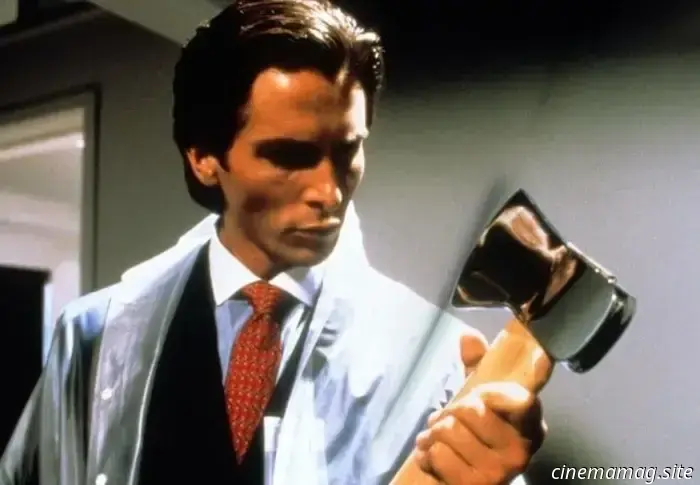
American Psycho Oral History: A Quarter-Century Since Its Controversial Release
American Psycho debuted in theaters 25 years ago this week. To commemorate this milestone, we are reposting the American Psycho oral history originally published in January 2020, without any edits or updates. Enjoy.—MM
When director Mary Harron initially sent Christian Bale the script for American Psycho, he was unfamiliar with it, except for the fact that it was adapted from a Bret Easton Ellis novel that had sparked considerable outrage.
“I had no clue what to anticipate. I hadn’t read the book at that point. I had heard about the uproar and calls for its ban, but I was not prepared for what I found,” Bale recounted to MovieMaker. “As I went through it, I was filled with laughter, and I didn’t know if that was Mary’s intention.”
Bale approached the situation cautiously: “I conversed with her over the phone, saying, ‘I need to say this upfront, as it might end our chat and could offend you. However, I think this is one of the most absurd and amusing scripts.’ And she responded, ‘Bingo. That’s exactly it. Please come out to meet me.’”
Many viewers were unsure of how to respond to American Psycho initially. When the film was showcased at the Sundance Film Festival, very few were prepared to accept it. It officially hit theaters on April 14, 2000.
“The level of hostility at Sundance really shocked me,” Harron remarked. “The audience sat there, completely uncertain about their response. The small group of us—me, the editor, Christian, and a few others—were laughing. We understood the scenes intended to be humorous were indeed funny.”
Guinevere Turner, Harron’s co-writer on the film, added:
“I had a dinner planned that night with Kevin Smith. While listening to a message from him—since he attended the screening—he said, ‘I’m not feeling well; I can’t come to dinner.’ I thought that was odd. Years later, he told me, ‘I disliked that movie so intensely that I couldn’t have dinner with you. I wasn’t sure how to discuss it. But when I watched it on cable again, I realized it’s actually brilliant.’”
Ellis has always described his novel American Psycho as a darkly comedic satire targeting the shallow, greedy men he frequently encountered as a young novelist in 1980s Manhattan. The film’s protagonist, Patrick Bateman, portrayed by Bale, delivers cliché critiques and recounts his violent acts in a disturbingly detached manner. No one suspects he’s a murderer as he resembles everyone else in his circle of stylish, attractive stock brokers. He idolizes Donald Trump.
Long before the emergence of cancel culture, the book was notable for its ability to provoke division and outrage. Feminist figure Gloria Steinem and members of the National Organization of Women vocally opposed the book, in part due to leaked excerpts—taken out of the context of the overarching satire—that illustrated brutal violence against women.
Ellis, disillusioned with the film adaptation of his first novel, Less Than Zero, was astonished that anyone sought the movie rights to American Psycho, a work he felt might be impossible to adapt.
“There was no line, trust me, of those wanting to produce this film,” Ellis noted.
Nonetheless, the book went through many screenwriters, directors, and actors, including Ellis, David Cronenberg, and Oliver Stone. At one stage, Leonardo DiCaprio was cast as Patrick Bateman.
And Harron became perhaps the only director to resign rather than collaborate with DiCaprio.
Here is MovieMaker’s oral history of American Psycho.
Mary Harron directs Chloë Sevigny and Christian Bale in a scene from American Psycho. All images courtesy of Lionsgate. – Credit: C/O
American Psycho, the novel
The controversy surrounding the book led to its cancellation by its original publisher in 1990. However, this attention contributed to its success as a bestseller once it was released in 1991.
Willem Dafoe, who stars as Detective Donald Kimball, said: “Everyone among my friends was reading the book... I enjoyed it very much. It was quite postmodern, transgressive, and balanced comedy with something quite serious simultaneously.”
Chloë Sevigny, who portrays Jean, Bateman’s secretary, recalled: “I remember my brother, it was his favorite book in high school and I think in college... That book was deeply embedded in my psyche, the cover. I found it to be a powerful story, and I wasn’t intimidated by the controversy.”
“I had already dealt with Kids as my first film, and after that, everything became somewhat easy.”
Bret Easton Ellis stated: “The media seized on this narrative and distorted it into something I knew it wasn’t. What was initially unsettling was being part of a manufactured scandal that was clearly false… Having The New York Times publish

Other articles
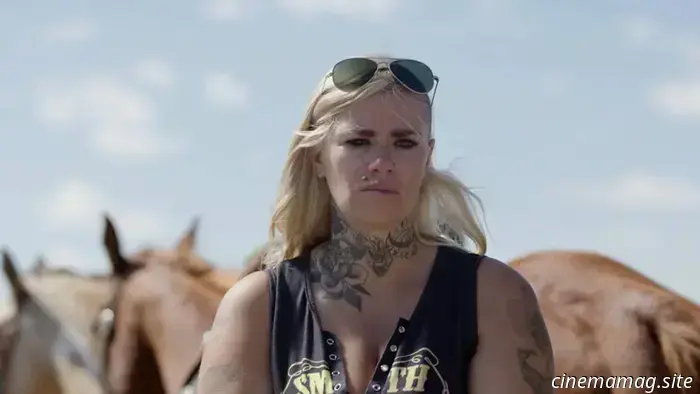 The lineup for the 2025 Tribeca Festival features films from Alex Ross Perry, Takashi Miike, RZA, and others.
The Tribeca Festival has announced its 2025 lineup in advance of the annual event scheduled for June 4-15. This year's selection includes Alex Ross Perry's Videoheaven, Takashi Miike's Shame, RZA's One Spoon of Chocolate, Hélène Cattet and Bruno Forzani's Reflection in a Dead Diamond, Kate Beecroft's East of Wall, among others. "At Tribeca, we hold the belief that storytelling serves as a powerful medium."
The lineup for the 2025 Tribeca Festival features films from Alex Ross Perry, Takashi Miike, RZA, and others.
The Tribeca Festival has announced its 2025 lineup in advance of the annual event scheduled for June 4-15. This year's selection includes Alex Ross Perry's Videoheaven, Takashi Miike's Shame, RZA's One Spoon of Chocolate, Hélène Cattet and Bruno Forzani's Reflection in a Dead Diamond, Kate Beecroft's East of Wall, among others. "At Tribeca, we hold the belief that storytelling serves as a powerful medium."
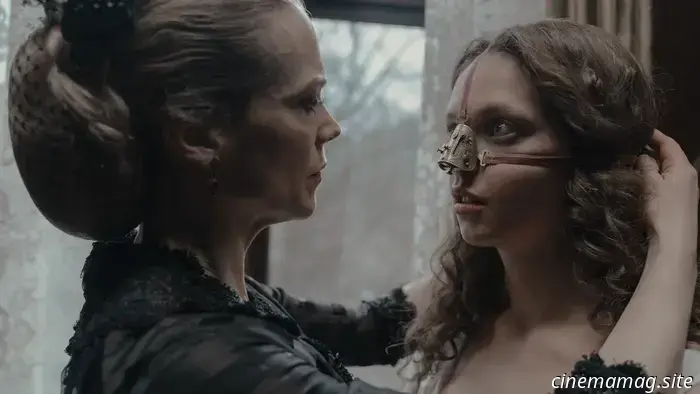 The Ugly Stepsister Review: Cinderella Receives a Gruesome and Empathetic Body Horror Reinterpretation
Please note that this review was initially published as part of our coverage for Sundance 2025. The Ugly Stepsister is set to be released in theaters on April 18. If the disappointing absence of originality in Disney's live-action remakes leads you to believe that these classic tales have reached the end of their run, you can count on Norwegian director Emilie Blichfeldt to breathe new life into them.
The Ugly Stepsister Review: Cinderella Receives a Gruesome and Empathetic Body Horror Reinterpretation
Please note that this review was initially published as part of our coverage for Sundance 2025. The Ugly Stepsister is set to be released in theaters on April 18. If the disappointing absence of originality in Disney's live-action remakes leads you to believe that these classic tales have reached the end of their run, you can count on Norwegian director Emilie Blichfeldt to breathe new life into them.
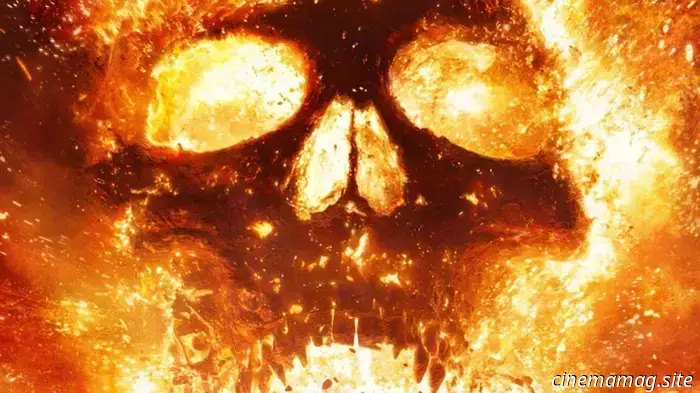 Final Destination: Bloodlines unveils a new poster.
Warner Bros. Pictures and New Line Cinema have unveiled an intense new poster for the upcoming installment of the horror series Final Destination: Bloodlines, featuring the Skyview restaurant being completely decimated; take a look here… SEE ALSO: Final Destination 25th Anniversary Retro Review: The Supernatural Slasher! The film is directed by Adam Stein & […]
Final Destination: Bloodlines unveils a new poster.
Warner Bros. Pictures and New Line Cinema have unveiled an intense new poster for the upcoming installment of the horror series Final Destination: Bloodlines, featuring the Skyview restaurant being completely decimated; take a look here… SEE ALSO: Final Destination 25th Anniversary Retro Review: The Supernatural Slasher! The film is directed by Adam Stein & […]
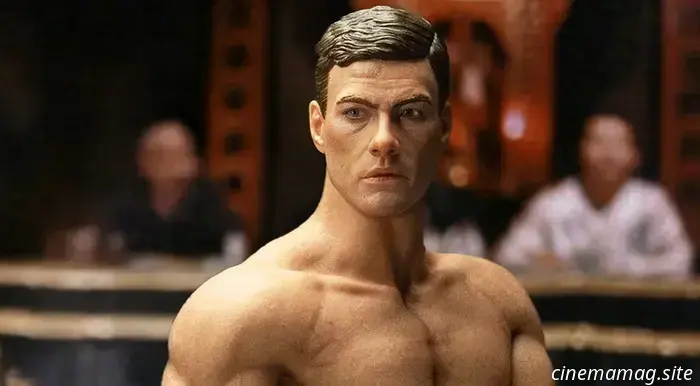 Infinite Statue has revealed a collectible of Frank Dux from Jean-Claude Van Damme's Bloodsport.
Infinite Statue has revealed its forthcoming Frank Dux sixth scale figure, inspired by Jean-Claude Van Damme's appearance in the 1988 martial arts cult classic Bloodsport. Take a look at both the Standard and Deluxe Versions of this collectible below… SEE ALSO: Enter The Muscles from Brussels: The Jean-Claude Van Damme Tournament Fight […]
Infinite Statue has revealed a collectible of Frank Dux from Jean-Claude Van Damme's Bloodsport.
Infinite Statue has revealed its forthcoming Frank Dux sixth scale figure, inspired by Jean-Claude Van Damme's appearance in the 1988 martial arts cult classic Bloodsport. Take a look at both the Standard and Deluxe Versions of this collectible below… SEE ALSO: Enter The Muscles from Brussels: The Jean-Claude Van Damme Tournament Fight […]
-Movie-Review.jpg) The Accountant 2 (2025) - Film Review
The Accountant 2, set to release in 2025, is directed by Gavin O'Connor and features a cast that includes Ben Affleck, Jon Bernthal, Cynthia Addai-Robinson, J.K. Simmons, Daniella Pineda, Alison Robertson, Robert Morgan, Grant Harvey, Andrew Howard, Matt Linton, Cassandra Blair, Nik Sanchez, John Patrick Jordan, Fernando Chien, Abner Lozano, Catherine Adell, Michael Tourek, and Monica Bhatnagar. SYNOPSIS: Christian Wolff utilizes his exceptional intellect and [...]
The Accountant 2 (2025) - Film Review
The Accountant 2, set to release in 2025, is directed by Gavin O'Connor and features a cast that includes Ben Affleck, Jon Bernthal, Cynthia Addai-Robinson, J.K. Simmons, Daniella Pineda, Alison Robertson, Robert Morgan, Grant Harvey, Andrew Howard, Matt Linton, Cassandra Blair, Nik Sanchez, John Patrick Jordan, Fernando Chien, Abner Lozano, Catherine Adell, Michael Tourek, and Monica Bhatnagar. SYNOPSIS: Christian Wolff utilizes his exceptional intellect and [...]
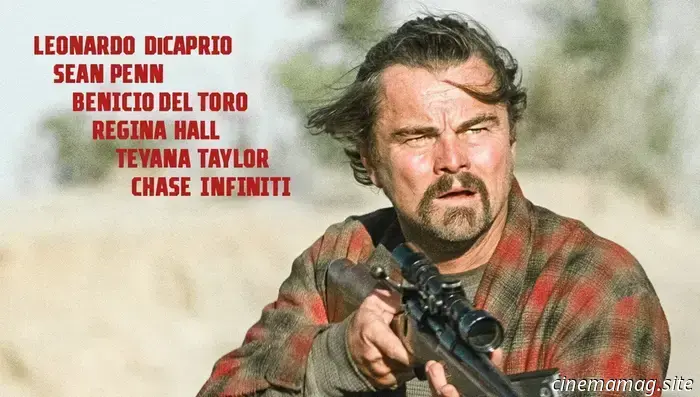 Leonardo DiCaprio is ready for action in the promotional poster for Paul Thomas Anderson's One Battle After Another.
After the trailer's launch, Warner Bros. is intensifying the marketing efforts for their Paul Thomas Anderson-directed political drama One Battle After Another by unveiling two brand new posters for the high-budget film set to release in the fall. Penned and helmed by the creator of Liquorice Pizza and There Will Be Blood, One Battle After Another features […]
Leonardo DiCaprio is ready for action in the promotional poster for Paul Thomas Anderson's One Battle After Another.
After the trailer's launch, Warner Bros. is intensifying the marketing efforts for their Paul Thomas Anderson-directed political drama One Battle After Another by unveiling two brand new posters for the high-budget film set to release in the fall. Penned and helmed by the creator of Liquorice Pizza and There Will Be Blood, One Battle After Another features […]
American Psycho Oral History: A Quarter-Century Since Its Controversial Release
A 25th-anniversary oral history of American Psycho featuring insights from Christian Bale, Mary Harron, Bret Easton Ellis, Chloë Sevigny, and others.
